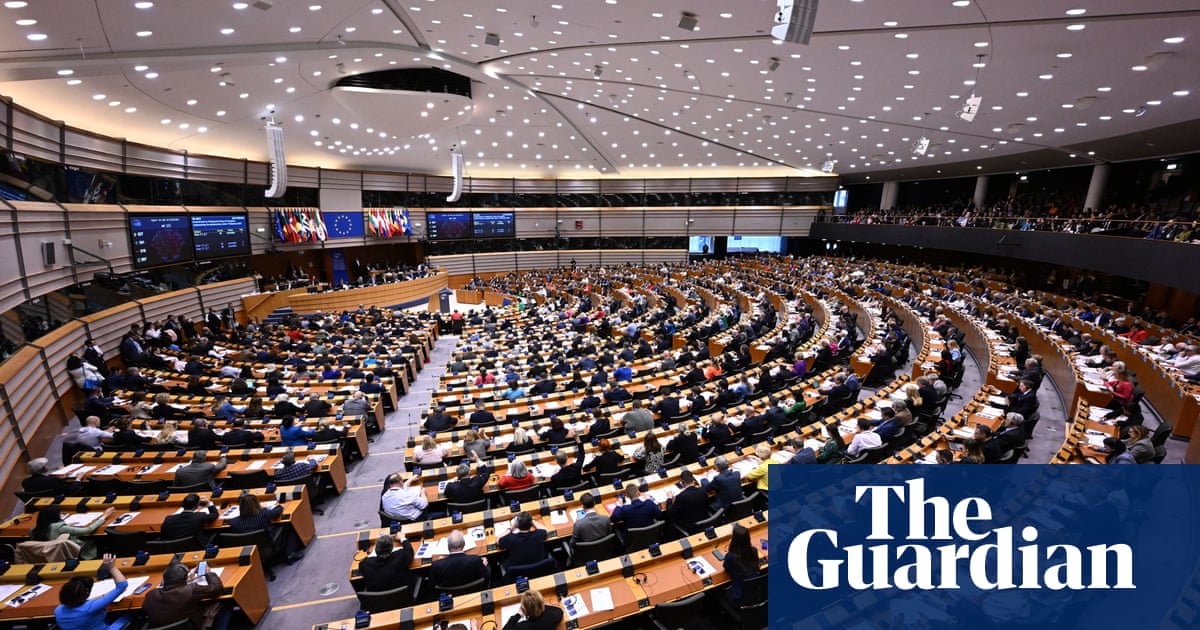
Sweeping changes to the EU’s migration laws have been passed in a knife-edge series of votes in the European parliament, with supporters of the new laws calling the move historic but NGOs saying they are a step back for human rights.
The vote on Wednesday, which is now expected to be rubber-stamped by the member states, ends eight years of deadlock over repeated efforts to tighten up border management and asylum processes in the 27-member bloc.
Supporters of the laws, who had been campaigning to get the legislation passed in the face of a rise in popularity of the far right before the European parliament elections in June, seized on the move as a great victory.
Roberta Metsola, the European parliament president, wrote on X: “History made. We have delivered a robust legislative framework on how to deal with migration and asylum in the EU. It has been more than 10 years in the making. But we kept our word. A balance between solidarity and responsibility. This is the European way.”
However, tensions in the huge auditorium as the voting started betrayed the deeply divisive nature of the laws. Proceedings were interrupted by protesters dressed in white T-shirts in the public gallery, who shouted at MEPs: “This pact kills! Vote ‘no’!” while throwing paper planes into the chamber.
NGOs hit out at what Eve Geddie, Amnesty International’s head of the European institutions office and director of advocacy, called a “failure to show global leadership”.
“After years of negotiations, EU institutions are now shamefully co-signing an agreement that they know will lead to greater human suffering,” she said in a statement.
“For people escaping conflict, persecution or economic insecurity these reforms will mean less protection and a greater risk of facing human rights violations across Europe – including illegal and violent pushbacks, arbitrary detention and discriminatory policing.
“Europe has missed a vital opportunity to build a migration and asylum system that places human rights at the centre, and to unconditionally uphold people’s human right to seek asylum no matter where they come from or how they have arrived.
“This pact is a failure to show global leadership on refugee protection and building safe, fair and dignified pathways for people to reach Europe – whether in search of safety or of opportunity.”
However the migration package was also criticised by rightwing politicians, who have argued the new laws do not go far enough.
after newsletter promotion
Among those that voted against parts of the asylum and migration pact were the French and Spanish far-right parties Rassemblement National and Vox, as well as the Polish nationalist populists Law & Justice, and Viktor Orbán’s Fidesz.
They had earlier denounced the 10-part pact as a licence for people-smugglers and a blow to member states’ sovereignty.
The new laws must now be approved by European leaders, with opposition guaranteed from Poland’s new prime minister, Donald Tusk. He has said he will not agree to a new law obliging every country in the EU to take its share of people from countries such as Italy if their systems become overwhelmed.